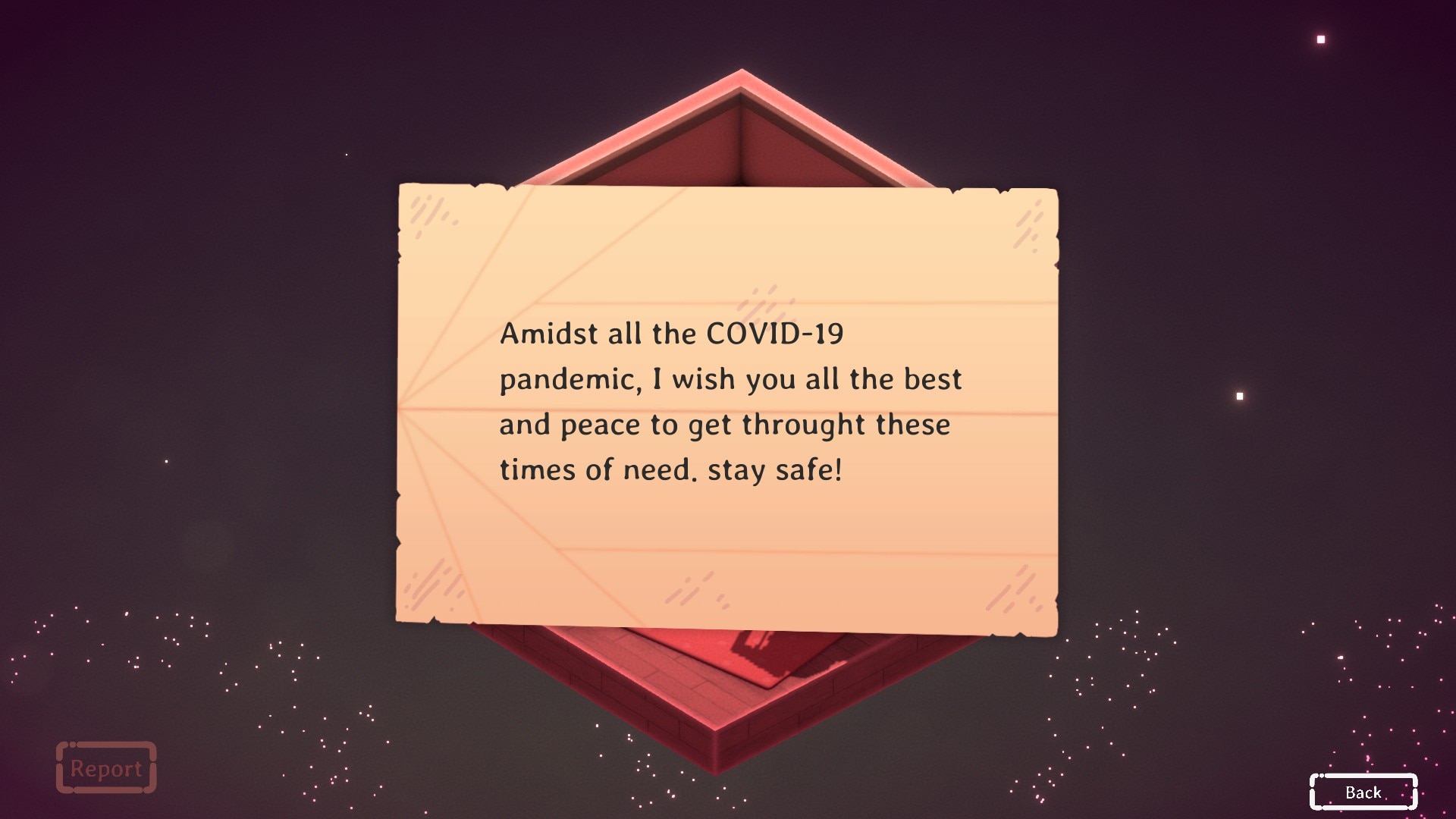Kind Words in Uncertain Times
April 1, 2020 / by Matthew Farber, Ed.D.
Recently, while working remotely from home, I began to play Kind Words. Published by Popcannibal, Kind Words is an online multiplayer game where players send and receive notes of gratitude, kindness, and encouragement from total strangers. It is the perfect game for today’s uncertain times.

The game is set in a bedroom that appears to be floating in a dreamlike space. Opened like a diorama, when players peer into the bedroom, they see a bookshelf, a bed, and a desk with a writing lamp by a sunlit window. The person sitting at the desk is all of us.
As lo fi electronic music plays in the background (original music by Clark Aboud), paper airplanes sail by. Clicking on one unfolds letters. One I click on today reads, “Life is worth living. You are worthy of all the happiness, joy and love in this world.” Like all of the letters I open, this one is not signed. It was as if the universe itself sent me a note of encouragement.
All of the letters I open have a positive message. There are some chain letters, of course, but nothing toxic. Perhaps it is because of the anonymity of the letters, or maybe it is because this is a game, and not social media. I am in the anti-Twitterverse.
Players in Kind Words can do more than open folded paper airplane notes: You can send letters, as well as reply to other players. I click the button that says “Say Nice Things.” “Today is a new day, seize it!” I write. This interaction is guided by “Ella the Female Mail Deer,” my companion guide through this meditative experience. There is a link on the screen for mental health resources. Aside from MentalHealth.gov and the suicide prevention life line links and phone numbers, two of these resources are gamer-specific—CheckPoint, and Take This.
In addition to sending and receiving letters, players can send and view requests from other players. One I open reads, “I’m sleeping really bad right now because of social distancing and dream about not getting daily stuff to live although the supermarkets are full. Any way to deal with this?” Ella leads me through the response process, reminding me that I can’t solve everyone’s problems. She suggests empathy and validation, which is how I framed my reply. My reward for replying unlocked new songs to the game’s lo fi playlist, and stickers to decorate my digital bedroom.
Kind Words IRL
We all need more kind words in our lives, from strangers, but as well as from friends, peers, and family. This academic school year, I intentionally embedded kindness into my courses. I use Classcraft to model gamification to pre-service teachers. Unlike purely extrinsic systems, Classcraft has learning quests and other features that put self-determination theory into practice. Specific to kindness and gratitude, Classcraft has a new “Kudos” feature, where students can send kind words to peers. As the teacher/Classcraft game-master, I read and approve notes in the game’s dashboard before they are shared with students (a useful feature to moderate what students share). As this is a game, students earn experience points (XP) for sending, as well as receiving Kudos.
As all of our courses shifted suddenly to an online-only format, I posted a “Gratitude Check-in” Padlet in Canvas, our learning management system. Padlet is a collaborative online bulletin board where multiple students add thoughts using digital sticky notes. These notes can be anonymous like in Kind Words, as well as moderated, like Classcraft’s Kudos. Above the Padlet I embedded a video from Fred Rogers where he shared his mother’s advice: In times of crisis, when watching scary news on TV, look for the helpers. The prompt in the Padlet then asked students (this was a voluntary activity), “Think of someone that you said ‘Thank you’ to recently. Please share an example of a time you said “Thank you” to someone, and why.” Responses came almost immediately. They were raw and honest. Difficult to read, all shared someone whom they were thankful for.
There are, in fact, many resources for teaching and sharing kindness. Recently, Games for Change, supported with Born this Way Foundation and iThrive Games led a kindness and empathy-themed Student Challenge youth game design event. The design prompt was: “Research how kindness impacts how we feel about ourselves, how we feel about each other, and how healthy our schools and communities are. Make a game that teaches people how being kind matters.” For more, visit here.
Additionally, there are several online resources on kindness and gratitude. Check out A Time I Felt Grateful from UC Berkeley’s Greater Good in Education, which shares a class discussion activity using sticky notes and reflective prompts. This lesson can be delivered using remote instruction using videoconference tools alongside Padlet or Google Classroom. Random Acts of Kindness is another online resource with lots of ideas on how to put kindness into action. Ideas range from leaving extra quarters at the laundromat to sending emails of encouragement to giving positive online reviews to local businesses.
In these uncertain times, we are all in this together. Kindness is infectious, and matters now more than ever. Be kind to one another… and pass it on!
